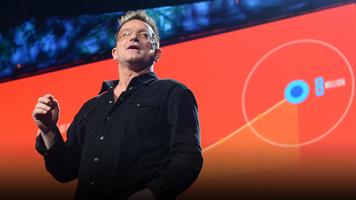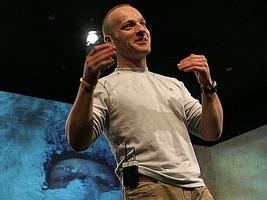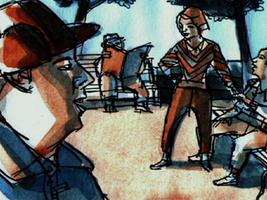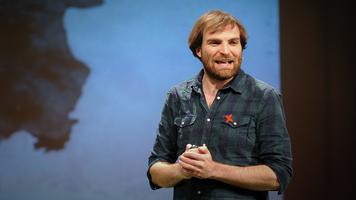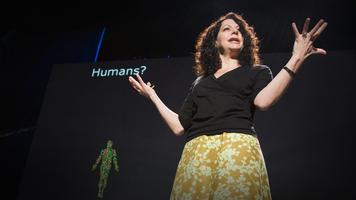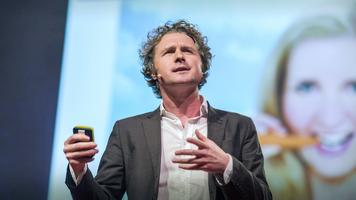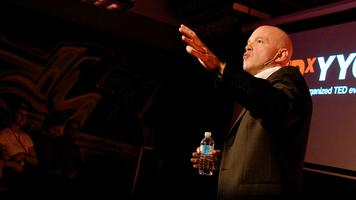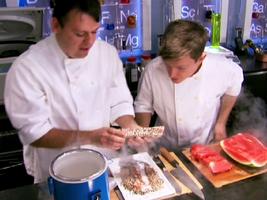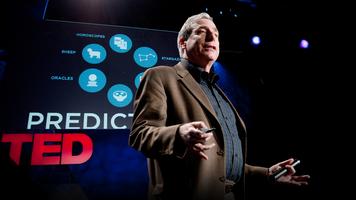Bono: The good news on poverty (Yes, there's good news)
Bono: My wish: Three actions for Africa
Richard Bona: "Tumba La Nyama" / "Mulema"
Gilad Bino: A year in the life of one of Earth's weirdest animals

Waddling along the parched Australian earth, a female platypus is searching for fresh water. Over the past year, a severe drought turned rivers and streams to mere trickles. She barely survived and was unable to reproduce. Could the next year bring a change in luck? Gilad Bino traces a year in the life of a platypus, and explores the unique adap...
Ben Saunders: Why bother leaving the house?
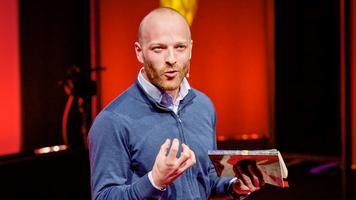
Explorer Ben Saunders wants you to go outside! Not because it’s always pleasant and happy, but because that’s where the meat of life is, “the juice that we can suck out of our hours and days.” Saunders’ next outdoor excursion? To try to be the first in the world to walk from the coast of Antarctica to the South Pole and back again.
Ben Saunders: Why did I ski to the North Pole?
Ben Goldacre: What doctors don't know about the drugs they prescribe
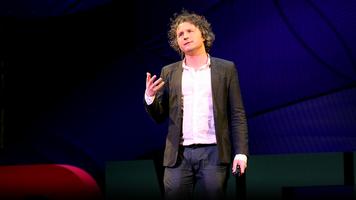
When a new drug gets tested, the results of the trials should be published for the rest of the medical world -- except much of the time, negative or inconclusive findings go unreported, leaving doctors and researchers in the dark. In this impassioned talk, Ben Goldacre explains why these unreported instances of negative data are especially misle...
Matt Beane: How do we learn to work with intelligent machines?
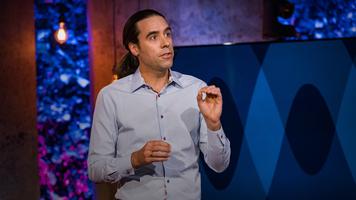
The path to skill around the globe has been the same for thousands of years: train under an expert and take on small, easy tasks before progressing to riskier, harder ones. But right now, we're handling AI in a way that blocks that path -- and sacrificing learning in our quest for productivity, says organizational ethnographer Matt Beane. What c...
Ben Kacyra: Ancient wonders captured in 3D
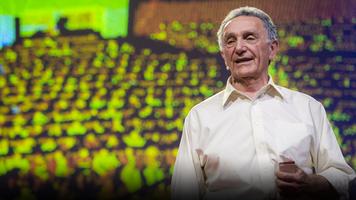
Ancient monuments give us clues to astonishing past civilizations -- but they're under threat from pollution, war, neglect. Ben Kacyra, who invented a groundbreaking 3D scanning system, is using his invention to scan and preserve the world's heritage in archival detail. (Watch to the end for a little demo.)
Ben Gran: Why nurses are key to medical innovation
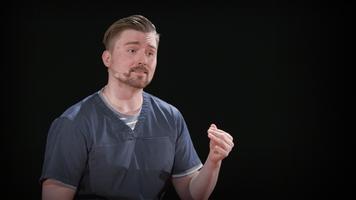
Nurses represent the front line of health care -- from first breaths to last moments, and everything in between. But there's a vital place nurses are missing in action, says Ben Gran. He makes a compelling case for integrating their invaluable insights and experience into health tech innovation to help make care (and the process of providing it)...
Ben Pring: The new jobs of the future, and other insights on the changing workforce

COVID-19 will change everything -- and the way we work and learn will be no exception. Will the traditional office structure be a thing of the past? Could our education system start to look more like a lifelong journey? Tech futurist Ben Pring and head of TED Chris Anderson tackle these questions and more in this thought-provoking interview. (Re...
Ben Cort: What commercialization is doing to cannabis
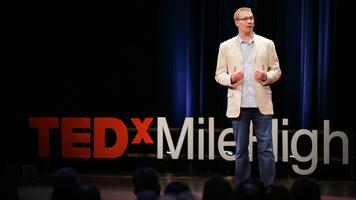
In 2012, Colorado legalized cannabis and added to what has fast become a multibillion-dollar global industry for all things weed-related: from vape pens to brownies and beyond. But to say that we've legalized marijuana is subtly misleading -- what we've really done is commercialized THC, says educator Ben Cort, and that's led to products that ar...
Ben Katchor: Comics of bygone New York
Ben Longdon: How do viruses jump from animals to humans?
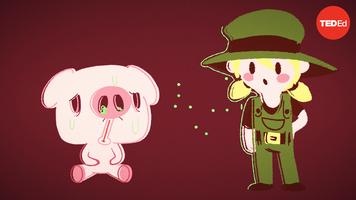
At a Maryland country fair in 2017, farmers reported feverish hogs with inflamed eyes and running snouts. While farmers worried about the pigs, the department of health was concerned about a group of sick fairgoers. Soon, 40 of these attendees would be diagnosed with swine flu. How can pathogens from one species infect another, and what makes th...
Bina Venkataraman: The power to think ahead in a reckless age
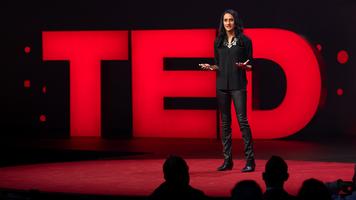
In a forward-looking talk, author Bina Venkataraman answers a pivotal question of our time: How can we secure our future and do right by future generations? She parses the mistakes we make when imagining the future of our lives, businesses and communities, revealing how we can reclaim our innate foresight. What emerges is a surprising case for h...
Bonnie Hancock: My epic journey becoming the fastest person to paddle around Australia
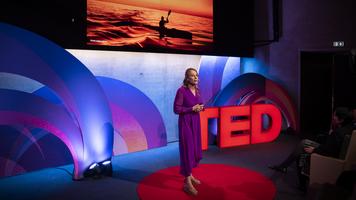
What challenges lie ahead of a staggering 12,700-kilometer paddle around the entire continent of Australia? Crocodiles and sharks were just the beginning, says Ironwoman Bonnie Hancock. Reflecting on her remarkable feat of becoming the fastest person to paddle around Australia, she shares lessons on perseverance, resilience and finding meaning i...
Ben Ambridge: 9 myths about psychology, debunked
Shigeru Ban: Emergency shelters made from paper
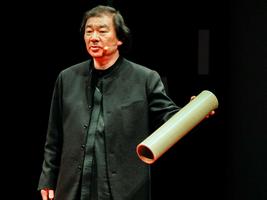
Long before sustainability was a buzzword, architect Shigeru Ban was using ecologically sound building materials such as cardboard tubes. He uses them to build remarkable temporary structures for disaster-struck nations such as Haiti, Rwanda and Japan. Yet often, these buildings remain a beloved part of the landscape long after they have served ...
Bonnie Bassler: How bacteria "talk"
Bonnie Tsui: How to use your muscles — or risk losing them

Did you know that you start losing muscle mass as soon as the age of 30? Author and surfer Bonnie Tsui explores how to build strength as you age with Chris Duffy, host of the "How to Be a Better Human" podcast. Watch as Bonnie tries to teach Chris how to surf while weaving in lessons on the benefits of weightlifting, maintaining mobility and add...
John Doerr: Why the secret to success is setting the right goals

Our leaders and institutions are failing us, but it's not always because they're bad or unethical, says venture capitalist John Doerr -- often, it's simply because they're leading us toward the wrong objectives. In this practical talk, Doerr shows us how we can get back on track with "Objectives and Key Results," or OKRs -- a goal-setting system...
Ben Wellington: How we found the worst place to park in New York City -- using big data
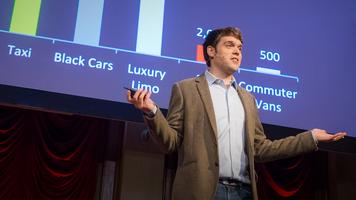
City agencies have access to a wealth of data and statistics reflecting every part of urban life. But as data analyst Ben Wellington suggests in this entertaining talk, sometimes they just don't know what to do with it. He shows how a combination of unexpected questions and smart data crunching can produce strangely useful insights, and shares t...
Iwan Baan: Ingenious homes in unexpected places
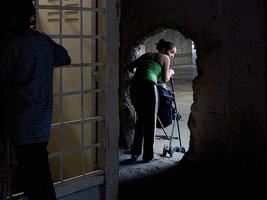
In the center of Caracas, Venezuela, stands the 45-story "Tower of David," an unfinished, abandoned skyscraper. But about eight years ago, people started moving in. Photographer Iwan Baan shows how people build homes in unlikely places, touring us through the family apartments of Torre David, a city on the water in Nigeria, and an underground vi...
Ben Saunders: To the South Pole and back — the hardest 105 days of my life
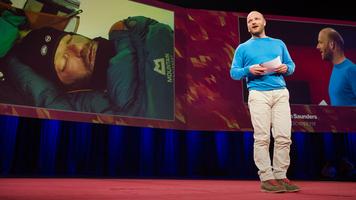
This year, explorer Ben Saunders attempted his most ambitious trek yet. He set out to complete Captain Robert Falcon Scott's failed 1912 polar expedition — a four-month, 1,800-mile round trip journey from the edge of Antarctica to the South Pole and back. In the first talk given after his adventure, just five weeks after his return, Saunders off...
Ben Goldacre: Battling bad science
Ben Cameron: Why the live arts matter
Ben Proudfoot: The true story of the iconic tagline “Because I’m worth it.” | The Final Copy of Ilon Specht

From two-time Oscar winner Ben Proudfoot comes THE FINAL COPY OF ILON SPECHT, an intimate deathbed account of the unsung advertising genius who coined L'Oréal's iconic "Because I'm Worth It" slogan in 1973, creating a four-word feminist manifesto that, against all odds, changed advertising forever. Produced by Breakwater Studios in partnership w...
T. Boone Pickens: Let's transform energy -- with natural gas
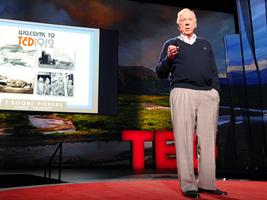
The US consumes 25% of the world's oil -- but as energy tycoon T. Boone Pickens points out onstage, the country has no energy policy to prepare for the inevitable. Is alternative energy our bridge to an oil-free future? After losing $150 million investing in wind energy, Pickens suggests it isn't, not yet. What might get us there? Natural gas. A...
Homaro Cantu + Ben Roche: Cooking as alchemy
Bruce Bueno de Mesquita: A prediction for the future of Iran
